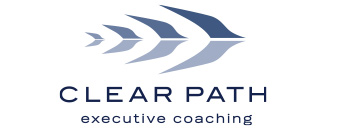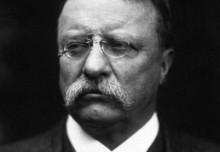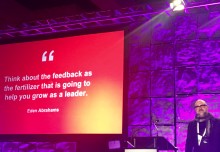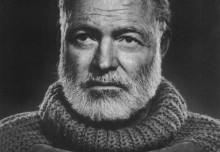
I’m writing this post on the plane home from Summit LA18, an eclectic and inspiring ideas festival that someone I met here aptly described as the love child of Burning Man and TED. Many of the featured speakers need no introduction, like Vice President Al Gore, CAA co-founder Michael Ovitz, former GE CMO Beth Comstock and Starbucks’ founder and CEO Howard Schultz. Most were thoughtful and engaging, but Schultz stood out to me in particular as someone who embodies many of the virtues we’re yearning for in our leaders today: personal humility; a belief in the need to balance profitability with social responsibility; a willingness to own mistakes, work quickly to remediate them and tell the truth, even when it’s uncomfortable; and an unwavering allegiance to upholding core principles. In Schultz’s case, that means operating a company where workers are treated with dignity – an experience, he explained, that eluded his day laborer father.
I also enjoyed hearing serial entrepreneur Gary Vaynerchuck riff, in his inimitably irreverent way, about his views on leadership, and what an impossibly hard job it is to be a good CEO – the kind of CEO who understands that he works for his team members, and not the other way around. Jennifer’s client Erik Gensler, President of Capacity Interactive, is that kind of leader. Their two CI to Eye podcast conversations highlight some of the many ways that coaching supports facilitative leadership. Apropos of Jessica’s recent blog post on resilience, Vaynerchuck also tossed out one of the best quotes I’ve heard about the value of cultivating a growth mindset, saying: “Leaders don’t talk nearly enough about how no’s and failures are essential to building the foundation for yeses and wins.”
Listening to X Prize Foundation founder and futurist Peter Diamandis talk with unbridled optimism about how we’ve never been better off as a species than we are right now, and share his excitement about technology as a force for good, was like the equivalent for me of Patrice’s handstand in her blog post about perspective shifting. By the end of his talk, I found myself on my feet, along with nearly everyone in the audience, cheering about some of the exceedingly challenging global problems his foundation is helping to solve by creating incentive competitions for funding.
I want to close on the topic of connectedness, which another Summit speaker, the Chilean primatologist Isabel Behncke, reminded us that we – and most of our cousins in the animal kingdom – are hard-wired to need. In fact, our survival depends on it. And yet we find ourselves at an inflection point where a confluence of factors, including technological innovation and the breakdown of trust stemming from fear, inequality and anxiety, are preventing many of us from experiencing the generative relationships we crave. Our families, our workplaces and our society as a whole are suffering from the fact that, we are, increasingly, alone together. As Beth Comstock pointed out when she was asked for her perspective on how best to address this problem, the remedy is as old school and low tech as it gets. Put your phone down, fine-tune your EQ antennae, and dial up your curiosity. Invite your co-worker, or your friend, or your child, out for coffee, or a walk. Ask how they’re doing. Listen. Ask follow-up questions. Be present. Be kind. Repeat this with others in your life as often as you can. When it’s appropriate, give out some spontaneous hugs. As another wise person (maybe Al Gore?) at Summit said, your humanity is a powerful renewable resource. Don’t squander it.









